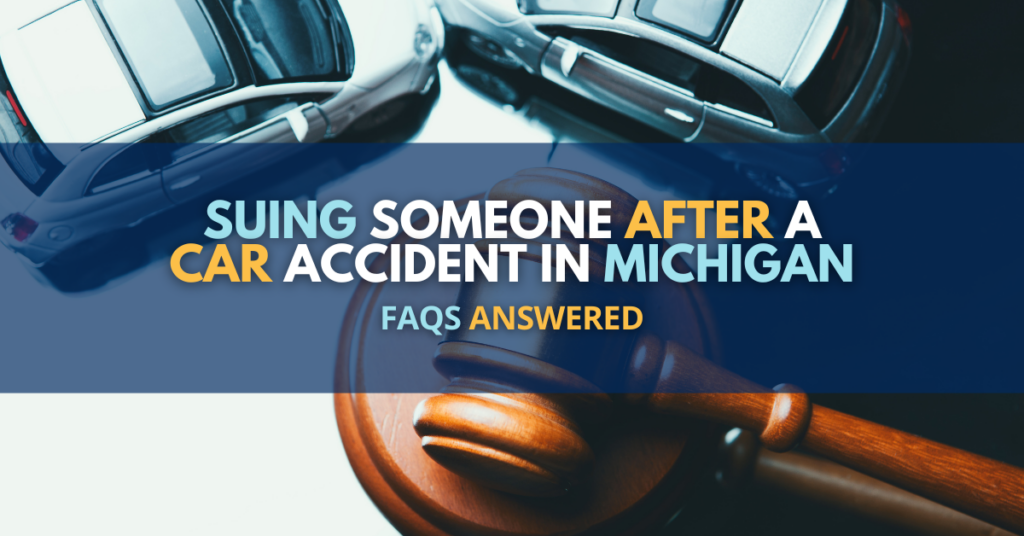Liability vehicle insurance covers the costs of property damage or injuries caused to others in an accident that you are responsible for. In today’s fast-paced world, accidents are an unfortunate reality on the roads.
Whether you are a seasoned driver or have just obtained your license, it is crucial to understand the importance of vehicle insurance. Liability vehicle insurance is designed to protect you financially in case you cause an accident that results in property damage or injuries to others.
This type of insurance covers the costs of repairing or replacing damaged property, as well as medical expenses and legal fees for injured parties. By carrying liability vehicle insurance, you can have peace of mind knowing that you are financially prepared for the unforeseen circumstances that may arise on the road.
Understanding Liability Vehicle Insurance
Liability Vehicle Insurance covers damages or injuries caused by you in an accident.
Liability Insurance Coverage
Liability Insurance Coverage pays for the other party’s damages if you are at fault.
Types Of Liability Coverage
- Bodily Injury Liability covers medical expenses of others.
- Property Damage Liability pays for damage to others’ property.

Credit: http://www.hertz.com
Key Components Of Liability Coverage
Key Components of Liability Coverage:
Bodily Injury Liability
When you own a vehicle, it’s crucial to understand what your liability insurance covers. One of the key components of liability coverage is bodily injury liability. This type of coverage helps protect you financially if you are responsible for causing injuries to another person in an accident.
With bodily injury liability coverage, your insurance company will assist in paying for medical expenses, rehabilitation costs, and even lost wages for the injured party. This can provide peace of mind knowing that you won’t face a financial burden in the event that someone is hurt due to your actions on the road.
Property Damage Liability
Another important aspect of liability coverage is property damage liability. This part of your insurance policy helps cover expenses if you damage someone else’s property in an accident. It can include repair costs for their vehicle, as well as any damage caused to structures, fences, or other property.
Having property damage liability coverage is essential as accidents can result in significant property damage. Without this coverage, you may be personally responsible for paying the repair costs out of your own pocket. With liability coverage, your insurance company can step in to handle these expenses, allowing you to avoid financial strain.
Differences Between Liability And Full Coverage
When it comes to auto insurance, understanding the differences between liability and full coverage is crucial for making informed decisions. Liability insurance and full coverage have distinct features that cater to different needs, and comparing them can help policyholders make the best choice for their circumstances.
Cost Differences
Liability insurance typically costs less than full coverage. This is because it only covers damages to the other party involved in an accident, rather than the policyholder’s vehicle. Full coverage, on the other hand, provides comprehensive protection for both parties involved in an accident, resulting in higher premiums.
Extent Of Coverage
Liability insurance covers the expenses of the other party involved in an accident if the policyholder is at fault. It includes bodily injury and property damage liability, but won’t cover the policyholder’s own vehicle damage or injuries. Conversely, full coverage includes liability insurance and also covers the policyholder’s own vehicle damages or injuries in addition to theft or natural disasters.
State Requirements For Liability Insurance
When it comes to liability vehicle insurance, understanding the state requirements is crucial. Each state has its own regulations concerning the minimum coverage limits and additional coverage options for liability insurance. So, let’s take a look at what you need to know about state requirements for liability insurance.
Minimum Coverage Limits
State requirements for liability insurance specify the minimum coverage limits that drivers must carry in order to legally operate a vehicle. These limits typically include bodily injury liability coverage and property damage liability coverage. In the table below, you can find the minimum coverage limits for liability insurance in several states:
| State | Bodily Injury Liability Limit (per person) | Bodily Injury Liability Limit (per accident) | Property Damage Liability Limit |
|---|---|---|---|
| California | $15,000 | $30,000 | $5,000 |
| Texas | $30,000 | $60,000 | $25,000 |
| Florida | $10,000 | $20,000 | $10,000 |
Additional Coverage Options
While meeting the state’s minimum coverage limits is mandatory, drivers also have the option to purchase additional coverage for greater protection. Uninsured motorist coverage, underinsured motorist coverage, and medical payments coverage are some of the additional options available. These coverages can offer financial security and peace of mind in case of accidents involving uninsured or underinsured drivers, as well as help with medical expenses. It’s important to carefully consider these additional coverage options to ensure adequate protection while on the road.
Determining Adequate Liability Coverage
Liability vehicle insurance is a vital coverage that ensures you are financially protected in case you are found responsible for an accident that causes injuries or damages to others. Understanding what liability vehicle insurance covers is crucial for every driver. This article focuses on determining adequate liability coverage, as it’s important to have the right amount of coverage to safeguard your financial security.
Factors To Consider
There are several factors to consider when determining how much liability coverage you need for your vehicle insurance. Adequate liability coverage will depend on:
- The state minimum requirements: Each state has its own minimum liability coverage requirements. You need to ensure that your coverage level meets or exceeds these requirements.
- Your assets: Take into account your financial standing, including your savings, investments, and property. If you have substantial assets, it’s crucial to consider higher liability limits to protect these assets in case of a lawsuit.
- Your regular driving habits: Assess your daily commute, the areas you frequently drive through, and the number of passengers you typically carry. These factors can affect your risk of an accident and influence the amount of liability coverage you should have.
- Your budget: While it’s important to have sufficient coverage, it’s also essential to consider your budget. Determine a coverage level that provides adequate protection without causing financial strain.
Consulting An Insurance Agent
Consulting an insurance agent can be immensely helpful in determining the right amount of liability coverage for your vehicle insurance. An experienced agent can assess your unique circumstances, evaluate your risks, and guide you towards an appropriate coverage level. They can provide valuable insights into the factors mentioned above and recommend a coverage plan tailored to your needs.
When consulting an insurance agent:
- Be open about your financial standing and assets.
- Discuss your regular driving habits and any potential risk factors.
- Provide information about your budget and limitations.
- Ask questions and seek clarification on any concerns you may have.
- Consider obtaining quotes for different coverage levels to compare costs and benefits.
Remember, determining adequate liability coverage is not a one-size-fits-all approach. It requires an assessment of multiple factors and understanding your personal circumstances. By carefully considering these factors and consulting with an insurance agent, you can ensure that you have the right level of liability coverage to protect yourself and your assets.
Liability Insurance Claims Process
When it comes to understanding the Liability Insurance Claims Process, knowing how to file a claim and how to deal with liability claims is essential for policyholders.
How To File A Claim
Filing a liability insurance claim is a straightforward process that involves reporting the incident to your insurance company as soon as possible.
- Report the incident to your insurance company
- Provide relevant details such as the date, time, and location of the incident
- Include contact information of all parties involved
- Submit any supporting documentation, such as photographs or police reports
Dealing With Liability Claims
Once a claim is filed, the insurance company will initiate an investigation to determine liability and assess the damages incurred.
- Cooperate with the insurance company’s investigation
- Provide any additional information or documentation requested
- Stay in communication with your insurance adjuster
- Review and understand the settlement offer before accepting
Top Misconceptions About Liability Insurance
Liability vehicle insurance covers bodily injury and property damage caused by the policyholder while driving. It’s a common misconception that this insurance only covers other parties involved in an accident, but it also provides coverage for legal fees, medical bills, and property repair costs.
Understanding the full scope of liability insurance is crucial for adequate protection on the road.
Myth Vs. Reality
Myth: Liability insurance only covers the damages to the other party in an accident.
Reality: Liability insurance covers both property damage and bodily injuries caused to others.
Common Misunderstandings
- Liability insurance covers your own vehicle damage.
- Liability insurance is optional.
- Liability insurance rates only increase after a claim.

Credit: http://www.studypool.com

Credit: http://www.michiganautolaw.com
Frequently Asked Questions Of What Does Liability Vehicle Insurance Cover
What Is Liability Vehicle Insurance?
Liability vehicle insurance covers damage to other people’s property and medical expenses for injuries from an accident you cause.
How Much Liability Insurance Do I Need?
The amount of liability insurance you need depends on your state’s minimum requirements and your personal assets. It’s recommended to have enough coverage to protect your assets in case of a lawsuit.
Does Liability Insurance Cover My Vehicle?
Liability insurance does not cover damage to your own vehicle. It only covers the costs of damages and injuries to others if you’re at fault in an accident.
Are There Different Types Of Liability Insurance?
Yes, there are different types of liability insurance such as bodily injury liability and property damage liability. These cover different aspects of potential costs from an accident.
Conclusion
It’s important to understand what liability vehicle insurance covers. This type of insurance protects you financially if you’re found liable for causing damage or injury in an accident. It covers the costs of property damage, medical expenses, and legal fees for the other party involved.
Having liability insurance is not only a legal requirement in many places, but it also gives you peace of mind knowing that you’re protected in case of an accident. So, make sure you have the right coverage to safeguard yourself and others on the road.
{ “@context”: “https://schema.org”, “@type”: “FAQPage”, “mainEntity”: [ { “@type”: “Question”, “name”: “What is liability vehicle insurance?”, “acceptedAnswer”: { “@type”: “Answer”, “text”: “Liability vehicle insurance covers damage to other people’s property and medical expenses for injuries from an accident you cause.” } } , { “@type”: “Question”, “name”: “How much liability insurance do I need?”, “acceptedAnswer”: { “@type”: “Answer”, “text”: “The amount of liability insurance you need depends on your state’s minimum requirements and your personal assets. It’s recommended to have enough coverage to protect your assets in case of a lawsuit.” } } , { “@type”: “Question”, “name”: “Does liability insurance cover my vehicle?”, “acceptedAnswer”: { “@type”: “Answer”, “text”: “Liability insurance does not cover damage to your own vehicle. It only covers the costs of damages and injuries to others if you’re at fault in an accident.” } } , { “@type”: “Question”, “name”: “Are there different types of liability insurance?”, “acceptedAnswer”: { “@type”: “Answer”, “text”: “Yes, there are different types of liability insurance such as bodily injury liability and property damage liability. These cover different aspects of potential costs from an accident.” } } ] }



Leave a comment